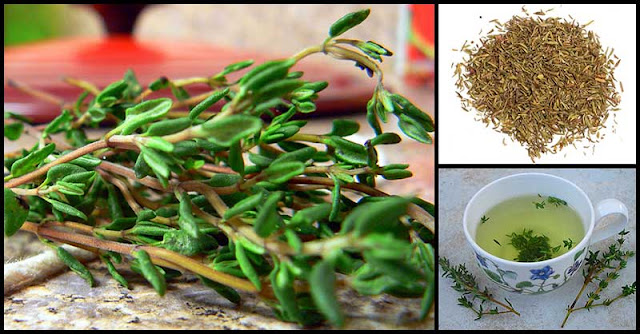Thyme is a wonderful food ingredient that has a distinctive taste – spicier than oregano and a scent reminiscent of pine and camphor. It is recognized by its tiny, sage-green leaves and thin but woody stalks. Fresh or dried thyme leaves and flowers are being used to add flavor in soups, stews, and sautéed vegetables. Aside from this, it is also sought after for cosmetics, soap, perfume, toothpaste, and antibacterial cream.
This herb from the mint family is so much more than an after-thought ingredient. It possesses medicinal properties that have been known for many years. Thyme can be used to treat a wide range of health problems in which some of them are listed below.
Helps Boost Digestive Health
Thymol, the active compound of thyme, helps promote the overall well-being of the digestive tract. It works by stimulating the peristaltic muscle movements so that food is not held in the stomach for prolonged periods of time. It can also reduce bloating from malabsorption, prevent the formation of gas in the gastrointestinal tract and supports the removal of excess gasses which helps to combat flatulence.
An Effective Remedy For Cough
For many years, thyme has been used as a natural remedy for cough, bronchitis and other respiratory condition. It can be inhaled to open airways or be taken orally to treat a chest infection.
Results of a 2013 study published in the European Respiratory Journal have shown that thymol acts on receptors on the tongue, throat mouth, and nasal passages in a way that may suppress coughs. The use of thymol nasal spray was found to have cooling effects and can significantly reduce the number and severity of coughs as well as the overall urge to cough.
Helps Improve Vision
Thyme promotes a healthy vision. It is rich in vitamin A, a fat-soluble vitamin and an antioxidant that produces the pigments in the retina of the eye and is essential for healthy mucous membranes and skin.
Helps Improve Heart Health
Thyme has antispasmodic properties that can help relax veins and arteries, stimulate the circulatory system, and strengthen heart muscles thus lowering blood pressure and easing stress on the heart.
Helps Boost Immunity
Thyme is loaded with nutrients that are needed by the body. It is a good source of vitamin A and vitamin C. It can help get a person back in good health if he feels a cold coming on. Aside from this, thyme also contains iron, copper, fiber, and manganese.
A cup of thyme tea is recommended for those with cold.
Helps Maintain Kidney’s Health
Thyme acts as a natural diuretic. It promotes regular urination which is essential for normal kidney functioning. At the same time, it works without upsetting the delicate electrolyte balance and ensures that that too much fluid isn’t retained.
Helps Deal With Menstrual Cramps
Thyme has antispasmodic (spasm-relieving) and analgesic (pain-relieving). In a 2012 study published in the Journal of Research in Medical Sciences, researchers have found that taking thyme supplements four times daily for two months can help provide relief from menstrual cramps.









